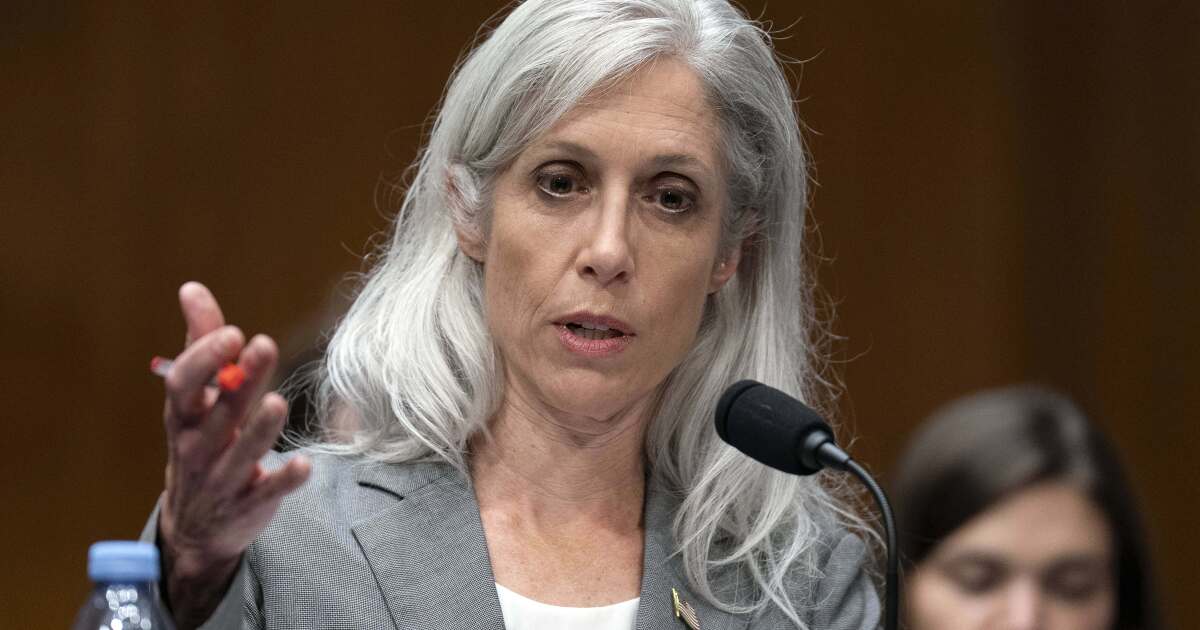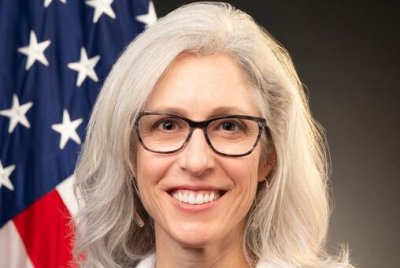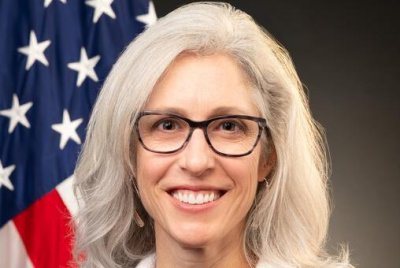Fired CDC chief Susan Monarez warns senators that RFK Jr. is endangering public health
WASHINGTON — America’s public health system is headed to a “very dangerous place” with Health Secretary Robert F. Kennedy Jr. and his team of anti-vaccine advisors in charge, fired Centers for Disease Control and Prevention chief Susan Monarez warned senators on Wednesday.
Describing extraordinary turmoil inside the nation’s health agencies, Monarez and former CDC Chief Medical Officer Debra Houry described exchanges in which Kennedy or political advisors rebuffed data supporting the safety and efficacy of vaccines.
Monarez, who was fired after just 29 days on the job following disagreements with Kennedy, told senators deadly diseases like polio and whooping cough, long contained, are poised to make a comeback in the U.S.
“I believe preventable diseases will return, and I believe we will have our children harmed by things they don’t need to be harmed by,” Monarez said before the Senate health committee.
Monarez describes her firing by RFK Jr.
Monarez said she was ordered by Kennedy to resign if she did not sign off on new vaccine recommendations, which are expected to be released later this week by an advisory panel that Kennedy has stocked with medical experts and vaccine skeptics. She said that when she asked for data or science to back up Kennedy’s request to change the childhood vaccination schedule, he offered none.
She added that Kennedy told her “he spoke to the president every day about changing the childhood vaccination schedule.”
Republican Sen. Bill Cassidy (R-La.), a physician who chairs the powerful health committee, listened intently as Monarez and Houry described conversations with Kennedy and his advisers.
“To be clear, he said there was not science or data, but he still expected you to change schedule?” Cassidy asked.
Cassidy carefully praised President Trump for his commitment to promoting health policies but made it clear he was concerned about the circumstances surrounding Monarez’s removal.
Houry, meanwhile, described similar exchanges with Kennedy’s political advisors, who took an unprecedented role in preparing materials for meetings of the CDC’s advisory vaccine panel.
Ahead of this week’s meeting of the panel, Houry offered to include data around the hepatitis B shot that is administered to newborns to prevent spread of the deadly disease from the mother. She said a Kennedy advisor dismissed the data as biased because it might support keeping the shots on the schedule.
“You’re suggesting that they wanted to move away from the birth dose, but they were afraid that your data would say that they should retain it?” Cassidy asked.
Critical vaccine decisions are ahead
During the Senate hearing, Democrats, all of whom opposed Monarez’s nomination, also questioned Kennedy’s motives for firing Monarez, who was approved for the job unanimously by Republicans.
“Frankly, she stood up for protecting the well-being of the American people, and for that reason she was fired,” said Sen. Bernie Sanders, an independent from Vermont who caucuses with Democrats.
Monarez said it was both her refusal to sign off on new vaccination recommendations without scientific evidence and her unwillingness to fire high-ranking career CDC officials without cause that led to her ousting.
Kennedy has denied Monarez’s accusations that he ordered “rubber-stamped” vaccine recommendations but has acknowledged he demanded firings. He has described Monarez as admitting to him that she is “untrustworthy,” a claim Monarez has denied through her attorney.
While Senate Republicans have been mostly loath to challenge Trump or even Kennedy, many of them have expressed concerns about the lack of availability of COVID-19 vaccines and the health department’s decisions to scale back some childhood vaccines.
Others have backed up Kennedy’s distrust of the nation’s health agencies.
Kansas Republican Sen. Roger Marshall, a doctor, aggressively questioned Monarez about her “philosophy” on vaccines as she explained that her decisions were based on science. Alabama GOP Sen. Tommy Tuberville said Trump was elected to make change and suggested Monarez’s job was to be loyal to Kennedy.
“America needs better than this,” Tuberville said.
The Senate hearing was taking place just a day before the vaccine panel starts its two-day session in Atlanta to discuss shots against COVID-19, hepatitis B and chickenpox. It’s unclear how the panel might vote on the recommendations, though members have raised doubts about whether hepatitis B shots administered to newborns are necessary and have suggested COVID-19 recommendations should be more restricted.
The CDC director must endorse those recommendations before they become official. Health and Human Services Deputy Secretary Jim O’Neill, now serving as the CDC’s acting director, will be responsible for that.
“I’m very nervous about it,” Monarez said of the meeting.
Seitz and Jalonick write for the Associated Press. AP writers Mike Stobbe in New York and Lauran Neergaard in Washington contributed to this report.


